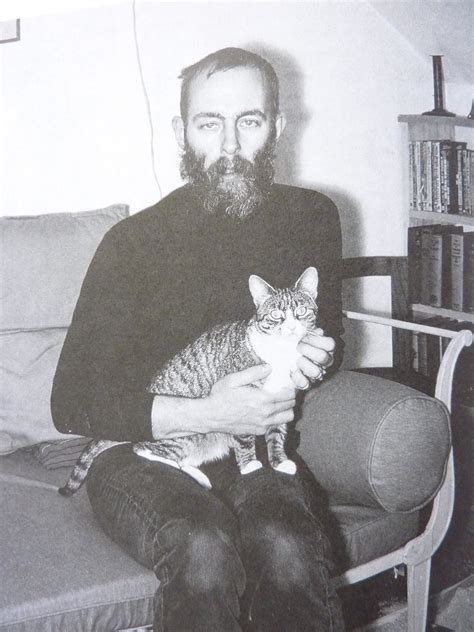A Quote by Saint Ambrose
Bind up thy words that they run not riot, and grow wanton, and gather up sins for themselves in too much talking. Let them be rather confined, and held back within their own banks. An overflowing river quickly gathers mud.
Related Quotes
Their property held them in chains...chains which shackled their courage and choked their faith and hampered their judgment and throttled their soul...If they stored up their treasure in heaven, they would not now have an enemy and a thief within their own household...They think of themselves as owners, whereas it is they rather who are owned: enslaved as they are to their own property, they are not the masters of their money but its slaves.
By the time it came to the edge of the Forest, the stream had grown up, so that it was almost a river, and, being grown-up, it did not run and jump and sparkle along as it used to do when it was younger, but moved more slowly. For it knew now where it was going, and it said to itself, “There is no hurry. We shall get there some day.” But all the little streams higher up in the Forest went this way and that, quickly, eagerly, having so much to find out before it was too late.
And as He has given, "In all thy getting, my Son, get understanding." This is putting proper emphasis in the proper places, and do not become sidetracked by things that would pertain to material or spiritual alone, or things of the body or things of the heavenly force. For you grow to heaven, you don't go to heaven. It is within thine own conscience that ye grow there. For there first must come peace and harmony within thy purpose, thy ideal, thy hopes, thy desires. Thy wishes even must be in harmony with thy ideal if you would make the experience in the earth of value to thee.
If, in the case of the worst sinners and those who formerly sinned much against God, when afterwards they believe, the remission of their sins is granted and no one is held back from baptism and grace, how much more, then, should an infant not be held back, who, having but recently been born, has done no sin, except that, born of the flesh according to Adam, he has contracted the contagion of that old death from his first being born. For this very reason does he [an infant] approach more easily to receive the remission of sins: because the sins forgiven him are not his own but those of another
If they had only themselves to consider, lovers would not need to marry, but they must think of others and of other things. They say their vows to the community as much as to one another, and the community gathers around them to hear and to wish them well, on their behalf and its own. It gathers around them because it understands how necessary, how joyful, and how fearful this joining is. These lovers, pledging themselves to one another "until death," are giving themselves away, and they are joined by this as no law or contract could join them.
Because people learn from their mistakes, Danger. Pain and failure are a natural part of life. It's kind of like a parent who watches their child fall down while learning to walk. Instead of coddling the child, you set them back on their feet and let them try again. They have to stumble before they can run. (Alexion) Do you really believe that we need to have our hearts ripped out? (Danger) A flower can't grow without rain. (Alexion) Too much rain and it drowns. (Danger) And yet the most beautiful of the lotus flowers are the ones that grow in the deepest mud. (Alexion)
We all end up living secret lives. We create what we are willing to admire and admiring what we shouldn't confess to the secret ofour own sin, our own insufficiency, our own sadness. We all end up taking our secrets into the world and handing them over to strangers, only to realize it's often too late to claim them back. The very nature of time passing is sad beyond words. Memories mean they're gone.
To judge sins is the business of one who is sinless, but who is sinless except God? Who ever thinks about the multitude of his own sins in his heart never wants to make the sins of others a topic of conversation. To judge a man who has gone astray is a sign of pride, and God resists the proud. On the other hand, one who every hour prepares himself to give answer for his own sins will not quickly lift up his head to examine the mistakes of others.
Living wisdom cannot be confined within words, but it can be hinted at through situations, much as a specific feature of an otherwise undistinguished landscape can often be discerned by following the path projected by a pointing finger. "Them that have ears, let them hear," said Jesus; whoever "hears" the inner import of words will be able to "see" their inward meaning.
I get to live forever," he repeated. Luce was still lost, but he kept talking, a stream of words pouring out of his mouth. "I get to live, and to watch babies being born, and grow up, and fall in love. I watch them have babies of their own and grow old. I watch them die. I am condemned, Luce, to watch it all over again and again. Everyone but you." His eyes were glassy. His voice dropped to a whisper. "You don't get to fall in love--" "But...," she whispered back. "I've...fallen in love.
...when the words pour out of you just right, you understand that these sentences are all part of a river flowing out of your own distant, hidden ranges, and all words become the dissolving snow that feeds your mountain streams forever. The language locks itself in the icy slopes of our own high passes, and it is up to us, the writers, to melt the glaciers within us. When these glaciers break off, we get to call them novels, the changelings of our burning spirits, our life's work.
It is hard living down the tempers we are born with. We all begin well, for in our youth there is nothing we are more intolerant of than our own sins writ large in others and we fight them fiercely in ourselves; but we grow old and we see that these our sins are of all sins the really harmless ones to own, nay that they give a charm to any character, and so our struggle with them dies away.










































